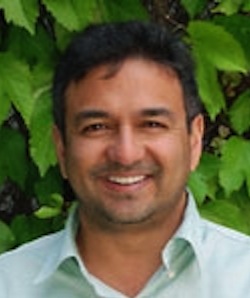
Cities and Climate Change
Noureen Ramzy | April 5, 2015
Responding To: Week 9: Climate Change
Marina Djernaes
Shared environmental resources can be a curse or a blessing in a conflict zone – it all depends on how they are managed. In a conflict zone, shared environmental resources can be a powerful base to develop collaboration and seek environmental solutions rather than becoming hostages to conflicts. EcoPeace’s project, Good Water Neighbors, documents how focusing on common heritage and a shared environmental resource can promote co-operation for environmental preservation between Israelis, Jordanians, and Palestinians in the midst of a conflict.
The demise of the Lower Jordan River has brought grave consequences to the health and economic wellbeing of surrounding communities, as the once mighty Jordan River has become a trickle of sewage due to inadequate sanitation infrastructure that allows raw sewage to flow directly into natural streams. With regionally interconnected waterways, this polluted water crosses borders, seeps into the ground water, and contaminates shared aquafers and natural resources. Water flows without regard for man-made boundaries and crosses the Green Line ever so indifferently. This hazardous pollution affects the health of Palestinians, Israelis and Jordanians, without regard to politics, religion or ethnicity.
In 2001, despite the outbreak of the second Intifada, EcoPeace initiated Good Water Neighbors - a co-operation between Israeli, Palestinian, and Jordanian communities. The work combines classic advocacy with a bottom-up approach of community-led activism: It emphasizes open dialogue, education, confidence building, and co-operation on conserving natural resources across borders with a special focus on shared water resources. EcoPeace plays the role of facilitator and mediator, promoting a better understanding between leaders in Israeli, Palestinian, and Jordanian communities along the Lower Jordan Valley.
Cross-border communities that both depend on shared water resources are encouraged to cooperate on sustainable water management. Community awareness is raised by educating youth and adult residents, including municipal staff, empowering them to change reality on the ground. Initially eleven communities were involved – five Palestinian, five Israeli and one Jordanian but today there are 28 communities (eleven Palestinian, nine Israeli and eight Jordanian).
Local representatives from each community work as field leaders to identify priority initiatives for each pair or cluster of cross border communities. To uphold a focus on cross-border co-operation and peace building, the initiatives must either solve water related problems through co-operative cross-community efforts, or promote solutions in one community that also imply significant improvements to the well-being of a neighboring cross-border community.
The goal is the rehabilitation of the Jordan River. As communities address issues of sanitation and conservation they rehabilitate shared waters. The process advances social bonds between communities, developing the potential for future economic growth and tourism. Over $75 million of investments in infrastructure and community activities has been leveraged. Local pride and development of paths along the river resulted in 359 "Neighbor Paths" tours given to over 10,000 participants, and more than 560 adult residents participated in cross border meetings. Evaluations of the activities and awards (Time Magazine 2000 Heroes of the Environment) highlight significant contributions to public understanding. Skoll Award highlighted Social Entrepreneurship to “turn an area of conflict - water - into a platform for on-the-ground co-operation, to promote problem solving through people-to-people contact and for advancing regional development and creating necessary conditions for lasting peace". Advocacy efforts encouraged the Israel Water Authority to pump water from Lake Kinneret into the southern Jordan River in an effort to rehabilitate the river (initially 1,000 cubic meters per hour to expand to 30 million cubic meters a year).
Unsurprisingly, it is not always easy to convince ‘enemies’ to co-operate. Successful cross-border co-operation in the midst of a conflict depends on the ability to organize and convince local decision makers and the public that such co-operation is in their best interests. This is particularly difficult when working with shared resources: with so much hostility and prejudice toward one’s enemy, it is hard to acknowledge that co-operation is not simply a favor to one’s enemy, but yields benefits to oneself.
The GWN project enables communities to collaborate on environmental issues across borders. This environmental issue is far too important to become hostage to endless negotiations towards a final peace agreement. Instead, grassroot movements and environmental peacebuilding can provide a foundation for a future political agreement – and finally bring peace to this region. A future that we, like so many others in the Middle East long for.
Marina Djernaes joined EcoPeace Middle East (formerly Friends of the Earth Middle East) as the Executive Operating Officer in September 2014.

Noureen Ramzy | April 5, 2015

Jemila Abdulai | March 22, 2015

O. Felix Obi | March 22, 2015

Rajesh Sampath | March 22, 2015

Claire Cullen | March 21, 2015